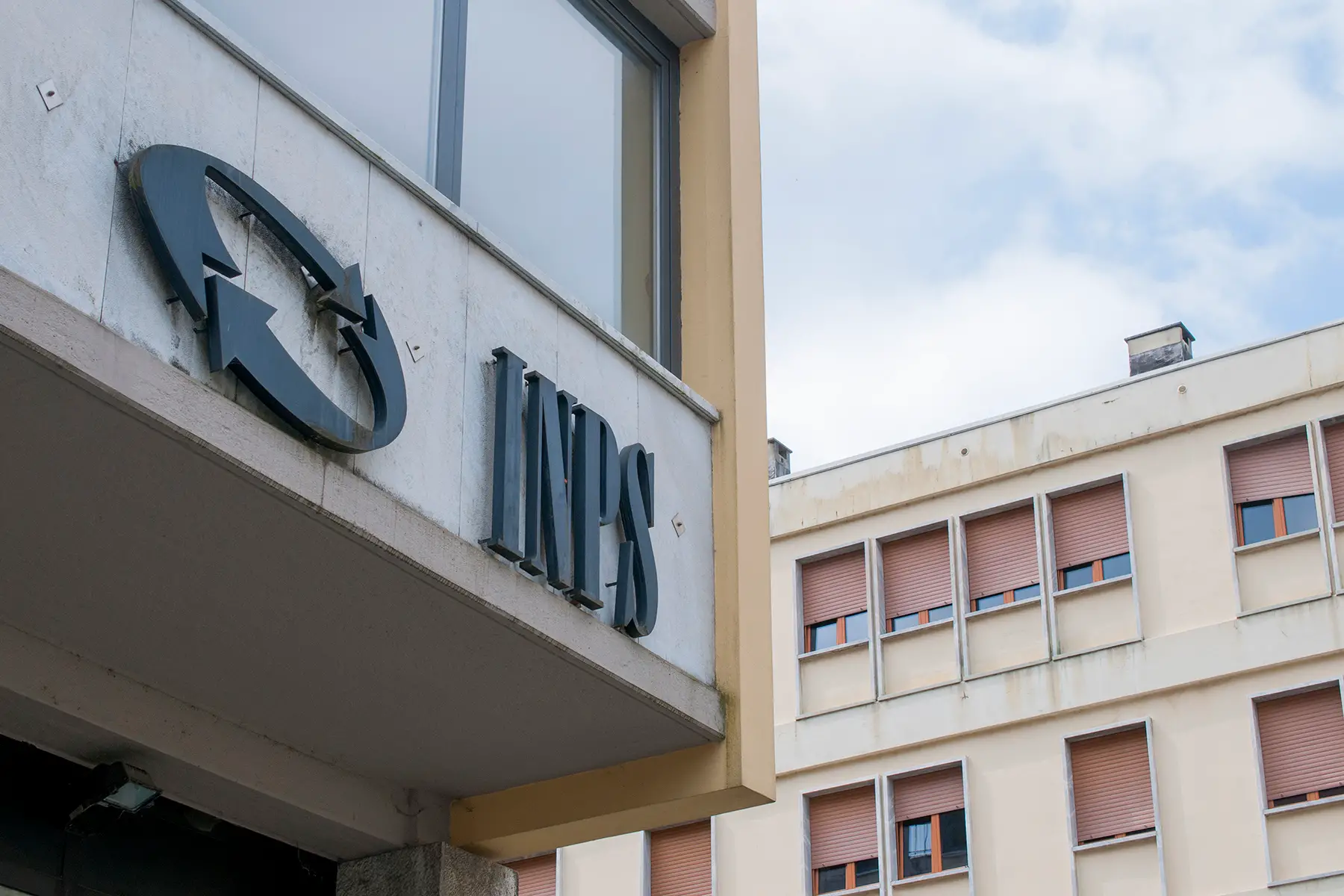Italy is an attractive location for internationals to move to and start their own business. Aside from the world-famous cuisine and warm climate, it’s also the fourth-largest economy in Europe. The country is home to over 4.4 million businesses – around 95% of them small enterprises with fewer than ten employees.
Of course, starting up your business is only part of the challenge. You need to keep up the hard work to make it a long-lasting success. This means knowing how to run a business in Italy and fulfilling all administrative requirements.
Read on to learn more about the key aspects, including:
Administrating your Italian business
Financial administration and record-keeping are essential to running any business in Italy and elsewhere. This is equally true for a small sole trader or freelancer as it is for a vast multinational enterprise.
Not only will it make things easier when planning and developing the business, but it’s also a requirement when reporting to authorities such as the Italian tax agency. Legally, Italian companies must keep financial records for at least ten years. This means that you’ll need to be clear in recording all your financial transactions and filing them for future reference.
Starting a business in Italy
There are many steps to starting a business in Italy. If you are moving to Italy from outside the European Union (EU) or European Free Trade Association (EFTA – Iceland, Liechtenstein, Norway, and Switzerland), you will need a work visa and residence permit. This means justifying your business idea to the Italian authorities and meeting annual immigration work quotas.

You will then need to decide whether to set up a limited business or work in Italy as a self-employed freelancer. If you’re running a larger organization that is already set up in another country, you may instead want to set up a branch or subsidiary business in Italy linked to an external corporate entity.
Whatever you decide, you will need to enter your business into the Italian Business Register (unless you choose the simple freelancer structure) and sign up with the country’s tax and social security authorities. You will have additional considerations if you employ staff to work for your business.
Italian business banking
One of the first things you will need to sort out for your Italian business is a company bank account. Incorporated businesses, such as limited companies, are legally required to have a separate business bank account.
Sole traders and freelancers don’t have to have a different account, but it makes sense to keep your business financial transactions separate from your personal income and outgoings, as it’s much easier to keep track of things.

There are various different Italian banks, including national, global, and regional cooperative banks. Another option is to use an online or mobile-only provider. These modern banks offer borderless services, are easy and convenient to use, and often provide cheaper products as they eliminate many administrative costs. Digital banks and transfer services in Italy include:
Italian banks offer a range of business banking account options, including current and savings accounts for small businesses and large corporations. Products include:
- Corporate credit cards
- Business loan options
- International money transfer and cross-border trading products
- Green financing
- Corporate leasing
- Business insurance
- Risk management products
To open a business account in Italy, you will usually need to provide:
- Photo ID, tax number, and proof of address of at least one owner
- Certificate incorporation if a limited business
- Most recent financial records if already trading, or projected accounts if a new business
Fees for Italian business accounts are typically €15–50 a month.
Business insurance in Italy
You need to take out business insurance (assicurazione aziendale) to protect against the many risks of running your own operations in Italy. Many Italian insurers offer professional insurance packages for freelancers and plans for small/medium-sized businesses and large corporations.
Products are often tailored towards specific industries or sectors, for example, plumbers’ insurance or agricultural business insurance, where you can choose between a multi-risk (multirischi) plan or individual types of insurance.

Common business insurance types in Italy include:
- Public liability insurance (assicurazione responsabilità civile) – protects against injuries to third parties or damage to their property caused by the business.
- Professional liability insurance (assicurazione responsabilità civile professionale) – similar to public liability but covers professional errors which result in financial or damage to reputation rather than physical injury.
- Property insurance (assicurazione sulla proprietà) – can include damage to buildings or movable property caused by fire, flooding, natural disasters, or theft of property. Some policies also provide liability coverage against accidents on the premises.
- Digital protection/cyber insurance (protezione/assicurazione digitale) – protects against cyber risks such as data loss and attacks.
- Business interruption insurance (assicurazione interruzione di esercizio) – covers running costs such as rent, utility bills, and wages if the business cannot operate for a period due to unforeseen circumstances.
- Business vehicle insurance (assicurazione auto aziendale) – car insurance to third-party liability level is mandatory for all vehicles in Italy. You can also buy commercial insurance, for example, to cover a fleet or to protect against damage caused by customers.
- Legal insurance (assicurazione legale) – covers legal costs in the event of a case against you going to court.
If you’re a freelancer working from home, you can also add business equipment to your home contents insurance policy.
Which types of business insurance are compulsory?
Many Italian businesses need a public liability insurance policy, especially those operating out of fixed premises or carrying out work where public safety is involved.
Certain businesses, including a number of freelance professions, require professional liability coverage. Property insurance requirements usually depend on your type of business, where you work, and other business requirements. For example, some business premises rental agreements may stipulate property insurance.
You may also need to take out this insurance if you apply for a business loan. Property insurance can often include liability coverage to save taking out two separate policies.
Car insurance in Italy is mandatory to third-party liability level, whether the vehicle is for personal or business use. You will also need to make social security payments to cover costs such as unemployment benefits and pensions, and companies that employ staff need mandatory insurance against employee accidents. Unlike in many other European countries, health insurance is not compulsory in Italy as the working population is covered by public healthcare.
Business insurance costs depend greatly on factors such as the size of the business and its individual needs. You can check out websites such as facile.it (in Italian) to compare prices.
Whatever company you choose to shop with, make sure it is regulated by the Italian Insurance Supervisory Authority (Istituto per la Vigilanza sulle Assicurazioni – IVASS).
Italian business accounting
All businesses in Italy need to keep accounting records for tax and administration purposes. However, what type of accounts you must keep depends on the type and size of your business.

Freelancers and businesses with an annual turnover of less than €700,000 (reduced to €400,000 for businesses providing services) can submit simplified accounts to the tax authorities. This involves a simple recording of income and expenses. All other companies need to submit ordinary accounts, which usually means keeping the following records:
- Journal of business transactions
- General ledger
- VAT registers
- Inventory register of assets and liabilities
- Shareholder meeting books
- Board of directors meeting books (if applicable)
- Board of auditors meeting books (if applicable)

Customer Success Specialist, Xolo
Maria Bozzo
Insider Tip: Deducting expenses
You can often deduct expenses related to your freelance activities (e.g., office supplies, travel, or training) from your taxable income. It’s crucial to understand the specific rules for expense deductions under your chosen tax regime.
By law, every business in Italy must keep accounts going back ten years. You can maintain accounts on the business premises or with third-party appointees elsewhere. If you’d rather keep your records electronically, you can do this with software and apps such as:
Keeping accurate financial records can seem like a daunting task for some. Fortunately, there are many financial advisors who can help you with Italian accounting and tax laws. Search our Business Directory for Italy for professional help.
Filing annual accounts
All companies with share capital, either private or public, also need to file annual accounts with the Italian Business Register. They should be prepared as a financial statement (bilancio d’eserzicio) consisting of:
- A balance sheet with information on all business assets and liabilities
- An income statement detailing all revenue, costs, and the profit/loss for the financial year
- An additional note containing any other important or relevant information

Some small businesses and micro-enterprises can submit simplified annual accounts that only consist of a profit and loss account and a statement of assets and liabilities. This is the case if your business is in its first financial year or if any two of the following apply for two consecutive years:
- Total business assets do not exceed €175,000
- Turnover does not exceed €350,000
- The average number of employees for the year does not exceed five
The financial year in Italy runs from 1 January to 31 December. Companies need to file their accounts with the Business Register within 30 days of approval by shareholders, no later than the end of either May or July of the following year (depending on the business statute). Annual tax returns need to be filed by the end of November following the financial year.
Auditing requirements
Some large businesses need to undergo an annual statutory audit (revisione legale dei conti) to comply with Italian auditing laws and standards. Businesses requiring a full audit are:
- Public limited companies (S.p.A.)
- Listed companies
- Regulated financial institutions such as banks and insurance companies
Private limited companies (S.r.l.) need an audit if they exceed two of the following for two consecutive financial years:
- Total assets of €4.4 million
- Turnover of €8.8 million
- Average of 50 employees for the year
If you run a business in Italy that needs an annual audit, you can appoint one of the following bodies to perform it:
- Board of Statutory Auditors (collegio sindacale)
- Sole auditor (sindaco unico)
- Audit firm (società di revisione)
- External auditor (revisore)
Auditors are appointed for three-year terms or nine-year terms for listed companies.
How to make an invoice in Italy
Unless you’re a retail business that only deals with point-of-sale transactions, you need to send invoices to your clients and customers so that they can pay you. If you’re sending invoices in Italy, make sure that you include:
- Your company name and address (you can also include a brand logo if you have one)
- Business tax number (or individual tax number if you’re a freelancer)
- VAT number if you have one
- Unique invoice number for reference purposes
- Date of invoice
- Customer name and address
- Terms of payment: due date, methods of payment, your business bank details if you want payment direct to your account
- Description of services or goods provided
- Rate charged for goods/services plus quantity
- Breakdown of applicable taxes
According to Italian accounting regulations, you should send invoices within 15 days of supplying goods or services. All invoices should be filed and kept for four years. There are no strict rules on terms of payment, but most invoices have a due payment deadline of 15–30 days from the invoice date.

Since January 2019, all businesses making VAT payments need to submit electronic copies of all invoices to the Italian Revenue Agency (Agenzia Entrate) in either XML or PDF format. You can do this through the tax agency exchange system (Sistema di Interscambio – SdI). The tax agency has produced a guide to e-invoicing (in Italian)and an English-language video explaining what to do.
What to do if a customer does not pay your invoice
Occasionally when running a business in Italy, you may get a customer that doesn’t pay an invoice within the allotted time. If this happens, you should first send a written reminder by post or email. Make sure to include an attached copy of the original invoice or its full details in the body of the email. The notification should also indicate the next steps. This usually means commencing court proceedings if the debt is not settled within a set period (normally 7–14 days from the date of the reminder letter).
The customer may contact you within this period to pay the debt in full or try to negotiate, for example, by offering an initial part payment or extending the payment period. It is up to you whether or not to enter into these negotiations. If you don’t get a response, or if you don’t want to negotiate, you can apply for a court injunction order (decreto ingiuntivo). This can consist of the original amount, interest accrued, and legal expenses.
If the customer doesn’t pay the debt within 40 days of the court order, you have the right to engage a debt collection agency. This includes the right to pass on any agency fees to the customer.
Tax planning for Italian businesses
All businesses in Italy, from large corporations to freelancers, must register with the Agenzia Entrate before they start trading. Freelancers and sole traders pay personal income tax on their professional earnings. Italy has a progressive tax system with rates between 23–43% on income tax. However, self-employed workers can instead enroll for a reduced flat-rate regime (regime forfettario) where they pay 15% (only 5% in their first five years) as long as they don’t earn above a set amount (€85,000 in 2023) and don’t offset their income with any expenses. If you’re moving to Italy to work self-employed, you can also benefit from a relocation scheme (lavoratori impatriati) where you pay tax only on 30% of earnings in the first five years.

Incorporated businesses in Italy have to pay corporation tax (imposta sui redditi delle società – Ires). This is currently 24% on business profits, which is essentially taxable income minus any allowable expense deductions. Corporate businesses also have to pay regional production tax (imposta regionale sulle attività produttive – IRAP), which is a local tax at a rate of 3.9%.
All Italian businesses and self-employed workers have to register for VAT (imposta sul valore aggiunto – IVA) with the tax authorities. The standard rate is 22% on all goods and services, although you can incorporate this into your own prices to consumers. Some goods have a reduced-rate VAT, for example, the VAT on food and drink is 4%. Although all businesses must register, only those paying over €65,000 are liable for VAT payments.
The Italian tax year runs from 1 January to 31 December. You need to submit tax returns by 30 November of the following year, and VAT returns between February and April of the following year. It’s a good idea to speak to a tax expert to help with your business tax planning.
Hiring staff and workers in Italy
If your Italian business becomes more than a one-person job, you’ll have to consider hiring staff. You can do this if you’re a limited company or sole trader. If you’re a freelancer, you can contract work out to other freelancers, but you cannot become an employer. If you do take on employees at your business, you’ll have to consider administrative necessities and Italian employment law.
How to hire staff
To become an employer, you will need to inform the tax agency as well as your local employment center (Centro per l’impiego – Cpi), who will notify the National Institute of Social Security (Istituto Nazionale della Previdenza Sociale – INPS) and the National Institute for Occupational Accident Insurance (Istituto Nazionale per l’Assicurazione contro gli Infortuni sul Lavoro – Inail) for social security purposes. This should be done at least 24 hours before the employee starts work.
You can recruit directly or use an employment agency (Agenzie per il lavoro) who will take care of a lot of the administration for you, sometimes including tax and social security registration, although there are fees for this. If you want to recruit directly, you can advertise through various different job portals. You will need to make sure that any employee is aged at least 16 and is authorized to work in Italy. If you want to recruit nationals from outside the EU/EFTA, you must go through Italian work visa processes.
You will need to lay out the terms of employment in an employment contract or hiring letter. These need to adhere to the Italian Civil Code (Codice Civile). There are different types of employment contracts in Italy, including:
- Full-time contracts
- Part-time contracts
- Fixed-term contracts
- On-call contracts (lavoro a chiamata o intermittente)
- Apprenticeships (apprendistato)
- Temporary supply contracts (contratto di somministrazione di lavoro)

Make sure that each contract includes:
- Names of both parties
- Place of work
- Start date
- Contract duration (if a fixed contract)
- Wage/salary
- Work hours
- Benefits – for example, holiday pay and sick pay
- Notice period and details of any trial/probation period
- Employer/employee rights and duties
If you are employing people working remotely, you will need to make sure the employment agreement covers any aspects of the job specific to this.
Employee rights and benefits
When employing staff in Italy, you’ll need to stick to Italian labor laws. This means respecting the equal rights of all employees, as well as paying attention to specific considerations such as women’s, LGBTQ+, and disability rights. There is no minimum wage in Italy – however, most workers are protected by national collective agreements. In addition to salary and basic employee rights, you’ll also need to consider things such as:
- Working hours
- Paid annual leave
- Sick pay
- Maternity and paternity leave
- Notice periods
As an employer, you’ll be responsible for enrolling staff in statutory social security schemes, for which you will have to make an employer contribution. You may also want to consider offering occupational schemes to incentivize employment, for example workplace pensions or health insurance plans.
Social security for freelancers
If you’re self-employed in Italy, you’ll need to make your own social security contributions in full as you won’t have an employer to split this with you. Freelancers and self-employed workers in Italy need to enroll in a social security scheme. This is usually through the statutory INPS scheme, although freelancers in many regulated professions can choose instead to enroll in one linked to their particular industry. The European Commission provides a breakdown of these schemes in its guide to social security.

In general, self-employed workers in Italy make higher contributions than employees as they have to pay into schemes on their own. Payments usually account for between 24–35% of earnings. In return, they are entitled to certain benefits such as unemployment allowance, state pension, and maternity leave.
Health insurance
In contrast to many European countries, Italy’s public healthcare system is universal and tax-funded rather than through health insurance. This means that workers don’t have to purchase health insurance in Italy. Freelancers and other self-employed workers can enrol in the public healthcare system as soon as they get their residence card.
However, you can choose to purchase private health insurance in Italy to supplement public healthcare. Many expats do this in order to access wider treatments, have better choice of healthcare providers, and reduce waiting times.
There are many health insurance providers in Italy that can offer quotes based on your own individual circumstances. These include global insurers offering worldwide coverage to expats living and working abroad, such as:
Pensions
Self-employed workers in Italy pay towards their state pension through their INPS contributions or payments to their separate industry scheme. Freelancers and those self-employed don’t have access to occupational pensions offered by many employers, however, they can top up their state pension by paying into a private pension. These ‘open funds’ are offered by financial organizations such as banks and insurance companies.
The pension you will receive upon retiring in Italy depends on your contribution rates, which vary depending on which social security scheme you belong to.
Other social security benefits
Social security payments also entitle you to unemployment allowance if you are self-employed and lose your income. The standard benefit for self-employed professionals (Indennità Straordinaria di Continuità Reddituale e Operativa – ISCRO) is for VAT-registered workers who have made at least four years of contributions to social security. If you are not eligible for this, you can claim the unemployment benefit for fixed-term contract workers (indennità di disoccupazione mensile – DIS-COLL) if you have made at least one month of contributions.
Freelancers and self-employed workers can also claim other social security benefits such as maternity/paternity allowance (congedo di maternità/paternità). However, statutory payments don’t cover certain areas, such as illness or injury through work-related accidents. You can take out private insurance to fill any gaps in coverage. Check the INPS or your industry social security provider for full details of coverage, payment rates, and entitlements.
Useful resources
- Doing Business in Italy – guide from the Italian Trade Agency with information relevant to starting a business in Italy, including business structures, taxation, and hiring staff
- Italian Chamber of Commerce (Camere di Commercio) – website with information on various aspects of running a business
- Agenzia Entrate – Italian Tax Agency with information on tax and accounting for businesses and individuals
- National Institute of Social Security (Istituto Nazionale della Previdenza Sociale – INPS) –government agency dealing with social security in Italy
- Ministry of Labor and Social Policies (Agenzia Nazionale Politiche Attive del Lavoro – ANPAL) – government ministry dealing with work, including self-employment










